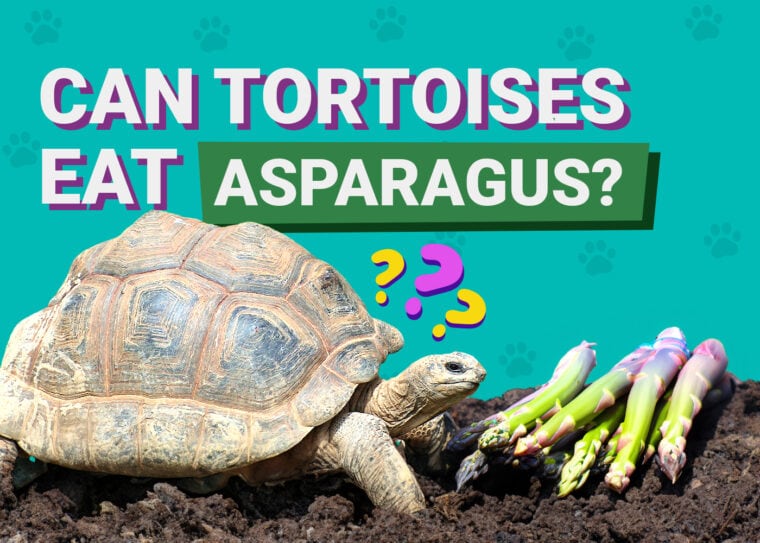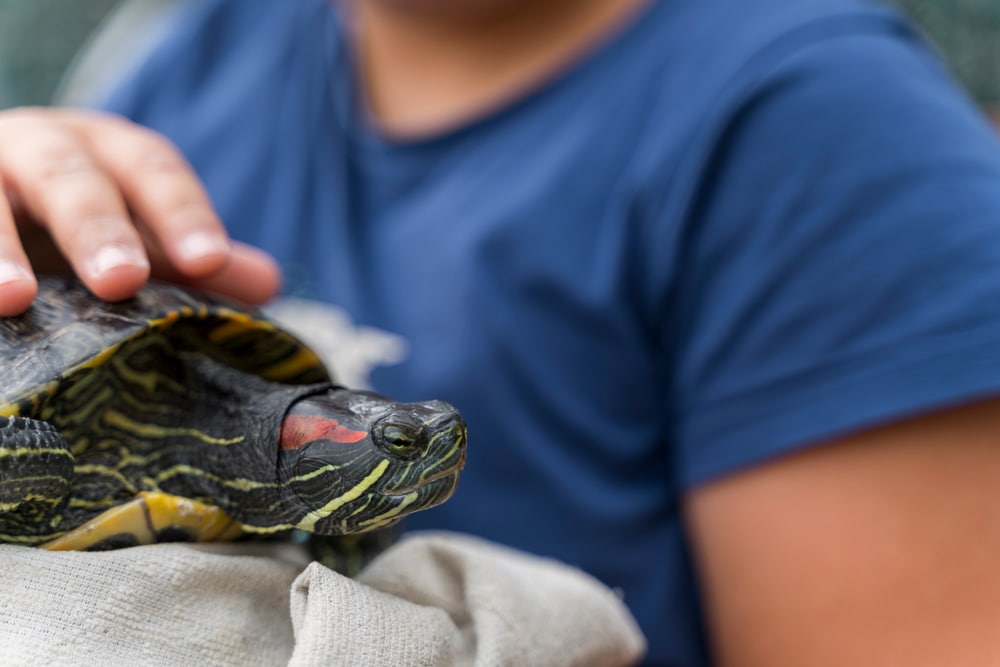
Tortoises are popular animals in the pet world, and that’s probably because they are perceived as not very hard to care for. Their care however is specialized and does require good research and amongst other things includes proper housing and a healthy diet. However, many owners are unsure on what to feed their tortoises and whether they can eat vegetables such as asparagus.
The answer is yes—but in moderation. If you have concerns about the amount you should give your tortoise or any other worries, read on below.
Tortoise Diet
When living in the wild, tortoises often travel long distances to find fresh food. Most tortoises live in dry areas of the world and have plant-based diets. What happens with tortoises in captivity is that their owners tend to overfeed them, which can cause various health problems. The best way to feed your tortoise is to know the requirements of your specific tortoise species and monitor its growth and development. In general tortoise varieties are separated into Mediterranean type, grazing species and rainforest species. Their required diets are different, so it is important to know the species of tortoise you have and what they need to eat.
Also, we need to watch what type of plants we are feeding our tortoise. For instance, plants that contain oxalic acids bind with calcium and prevent it from being absorbed properly. These plants are safe to feed in very small amounts, but overfeeding can cause problems with bones and shells. Plants with goitrogens such as cabbages can cause issues with the thyroid gland, but only if they eat significant amounts.
The essential factor for digesting their food is proper UVB lighting and being warm at all times because it helps their metabolism function properly. Even though most tortoises are herbivores, some, like Red or Yellow-footed tortoises, are omnivores. Since these omnivores require more protein, we suggest you feed them worms and insects occasionally, as they are an excellent source of protein.

Can Tortoises Eat Vegetables?
Tortoises can eat various vegetables, and a vast majority are healthy for your tortoise. For most species of tortoise vegetables should be second to weeds and grasses. When feeding, you should use a variety of leafy weeds and grasses, like dandelion, alfalfa and timothy grass, but they also love parsley, oat grass, fennel, and much more. There are many safe vegetables that can be fed in moderation such as carrot, green beans and butternut. You can occasionally feed them fruit such as apples, peaches, and mangoes in small amounts, depending on the species of your tortoise.
Is Asparagus Healthy for Tortoises?
Asparagus is a vegetable commonly used in our kitchen, but it can also be given to your tortoise in small amounts. Considerable amounts of asparagus can act as a diuretic, so you should keep that in mind. Its high nutritional value can also be good for your tortoise, though, but it’s crucial to offer it in moderation.
Nutritional Value Of Asparagus (134g):

Benefits of Feeding Asparagus to Tortoises
Asparagus is full of nutrients such as vitamins A, C, K, and E. All of these vitamins are important for the health and well-being of your tortoise. Vitamins A and C are crucial for their immune system, which helps them fight off diseases. Vitamin E is excellent for their reproduction ability and also for their vision. Asparagus also has a lot of fiber which is crucial for their digestive system. For example, it helps them regulate their body weight and bowel movements.
Asparagus also has a lot of antioxidants that are great for reducing oxidative stress. However, it is fairly high in protein, so it shouldn’t be used in everyday feeding.
Risks of Feeding Asparagus to Tortoises
One of the risks of feeding asparagus to tortoises is that it can act as a diuretic due to the amino acid asparagine. It increases the removal of salt and water from the body. While this can be good for reducing blood pressure, it has negative effects like nausea and dehydration if given in higher amounts. Another issue is that it has a poor calcium-to-phosphorus ratio, and so should only be fed in moderation or could result in metabolic bone disease.
How Much Asparagus Is Safe for a Tortoise?
The amount of asparagus you can feed your tortoise depends on many things, one of which is its size. Baby tortoises should eat far less than adult ones. For example, you shouldn’t feed a baby tortoise with more than a few bites sparingly. But with adult tortoises, you can feed them around one whole asparagus spear (cut into small pieces) as a treat occasionally. It is also important that you don’t give asparagus daily because your tortoise should eat a variety of leaves, flowers, and different vegetables. The amount of asparagus you give to your tortoise also depends on its species and size.

Conclusion
Even though asparagus shouldn’t be used in the everyday diet of your tortoise, it can be healthy occasionally because of its nutritional value. But as we mentioned, you shouldn’t overfeed your tortoise with asparagus because of the poor calcium:phosphorus ratio and diuretic properties. We hope this article helped you resolve any doubts you may have had regarding your tortoise’s diet.
Featured Image Credit: Pezibear, Pixabay








